Insomnia: 'I can only sleep for two hours a day on average'
- Published
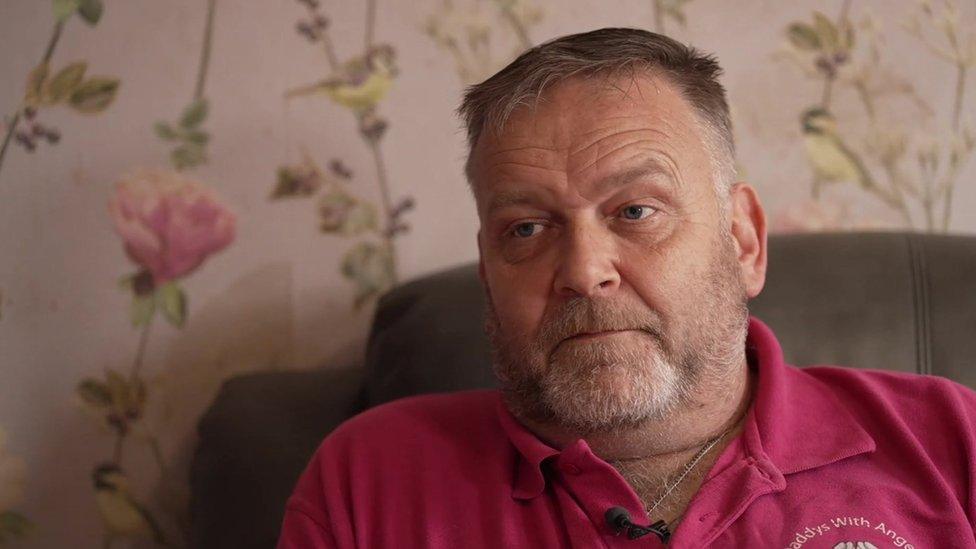
Dan Hill has suffered from sleep issues for almost a decade
A man who first started struggling with insomnia following the death of his week-old daughter 10 years ago says he fears his "body will give out".
Council dog handler Dan Hill, 51 and from Warrington, said he typically only sleeps for two to three hours a night.
According to the NHS,, external adults on average need at least seven hours.
"I think it will kill me and that's properly dramatic I know," he said, adding: "It's something that I've got used to - it's part of my day-to-day."
Mr Hill said the situation was "not getting worse [nor] better. This is the hand I've been dealt.
"And difficult though it may be, at some point the body will give out."

If you are affected by any of the issues in this article you can find details of organisations that can help via the BBC Action Line.

Mr Hill said he had experienced severe insomnia since the death of his seven-day-old daughter Isabella in July 2013.
"Getting to sleep isn't the issue," he told BBC North West Tonight. "I can be awake again within an hour and that could be for any reason.
"It could be a knock at the door. It could be a dog barking. It could be someone walking past and that's me again for the day.
"It's not a case of going back to sleep because that's just not possible."
Last week, Mr Hill decided to keep a sleep diary.
Over those seven days he recorded a total of only 17 hours' sleep.
He said he often found himself running on "auto-pilot" during the day.
"When you get home it's about trying to switch off," he said.
"But if you've only got six hours before you're going back in again, you can't switch off.
"Likewise you can't take any sleep remedies because you have to be awake again for the next shift."

What is insomnia?
You have insomnia if you regularly:
Find it hard to go to sleep
Wake up several times during the night
Lie awake at night
Wake up early and cannot go back to sleep
Still feel tired after waking up
Find it hard to nap during the day even though you're tired
Feel tired and irritable during the day
Find it difficult to concentrate during the day because you're tired

Mr Hill said he believed insomnia was far more common than most people realised.
"Nobody I know has gone to a doctor and said 'you know what, I'm really struggling sleeping' because their lives just don't allow for them to take a tablet and fall asleep for 12 hours because they've got children to get up for school," he said.
"They have got things to do and things like that. And I think sleep deprivation is a massive issue.
"It has health implications. It has working life implications, relationships especially. It needs addressing."
You can watch more on Dan's story on BBC North West Tonight at 18:30 BST or catch up on iPlayer.

Why not follow BBC North West on Facebook, external, Twitter, external and Instagram, external? You can also send story ideas to northwest.newsonline@bbc.co.uk, external
Related topics
- Published20 April 2023

- Published20 April 2023
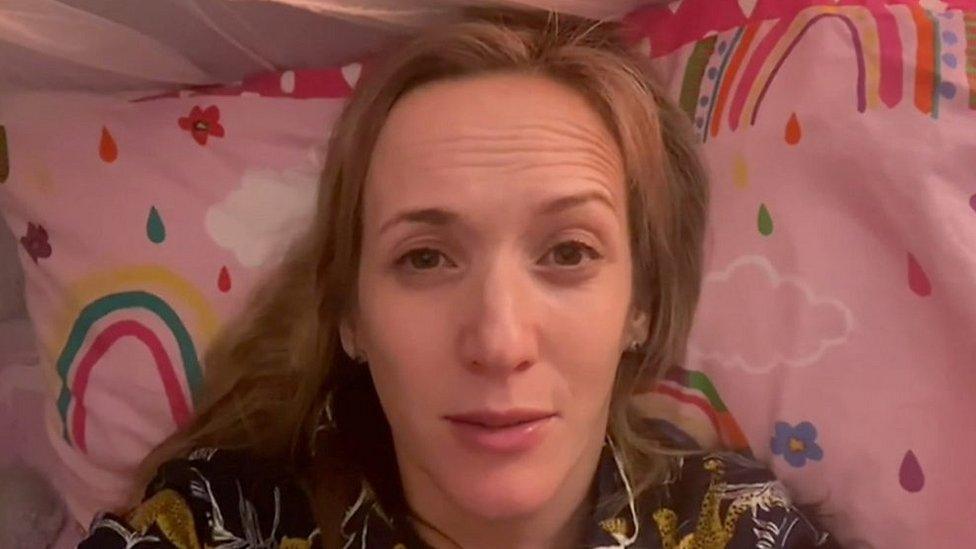
- Published12 August 2021
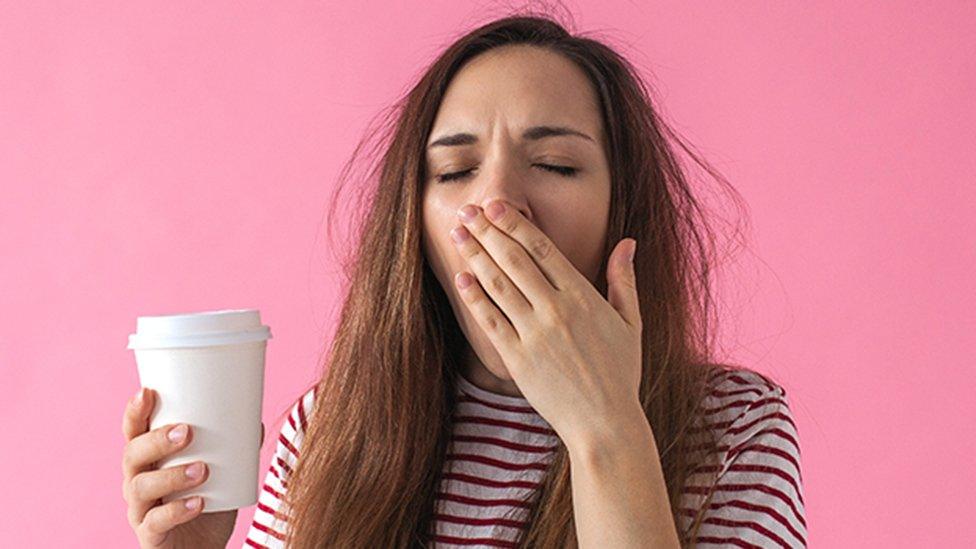
- Published19 April 2020
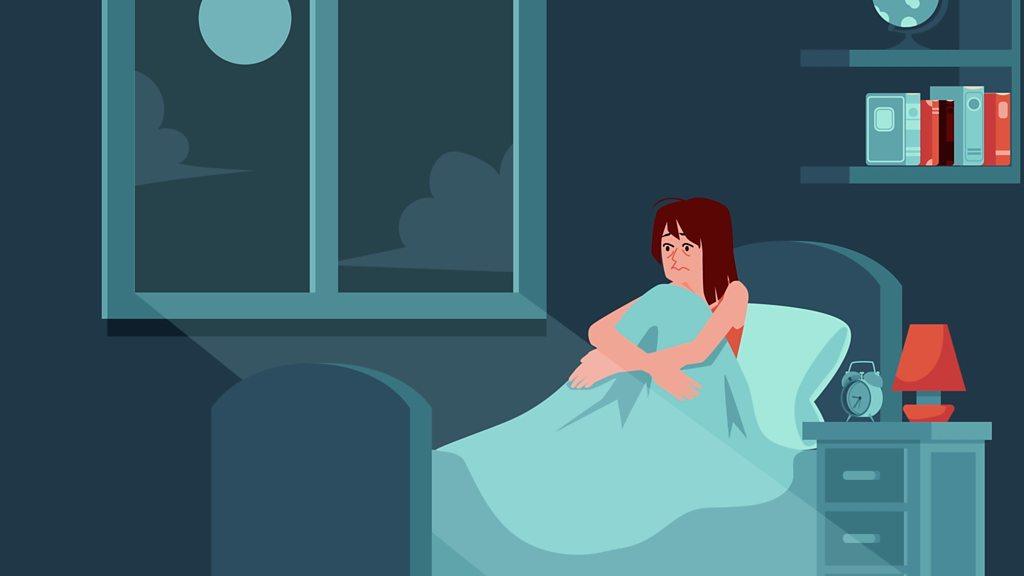
- Published12 May 2019
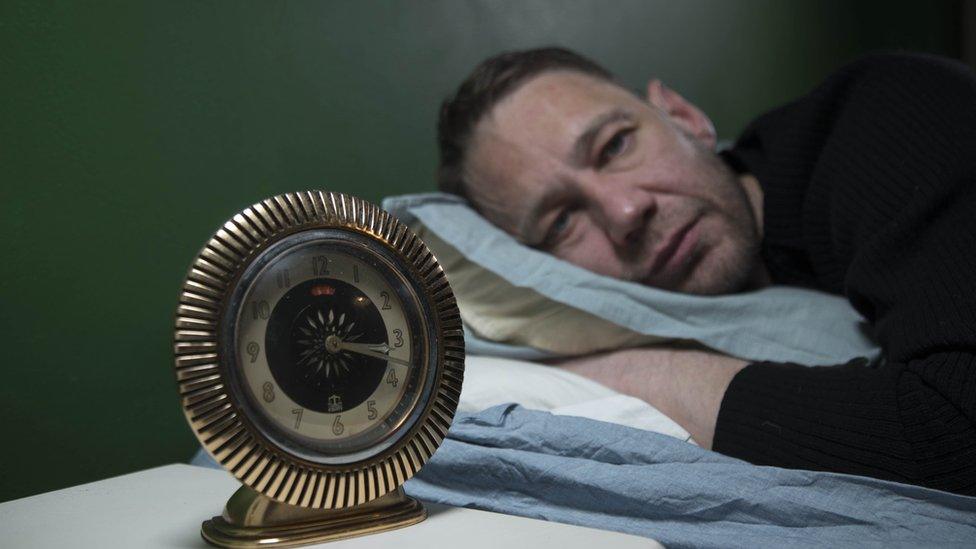
- Published21 June 2018
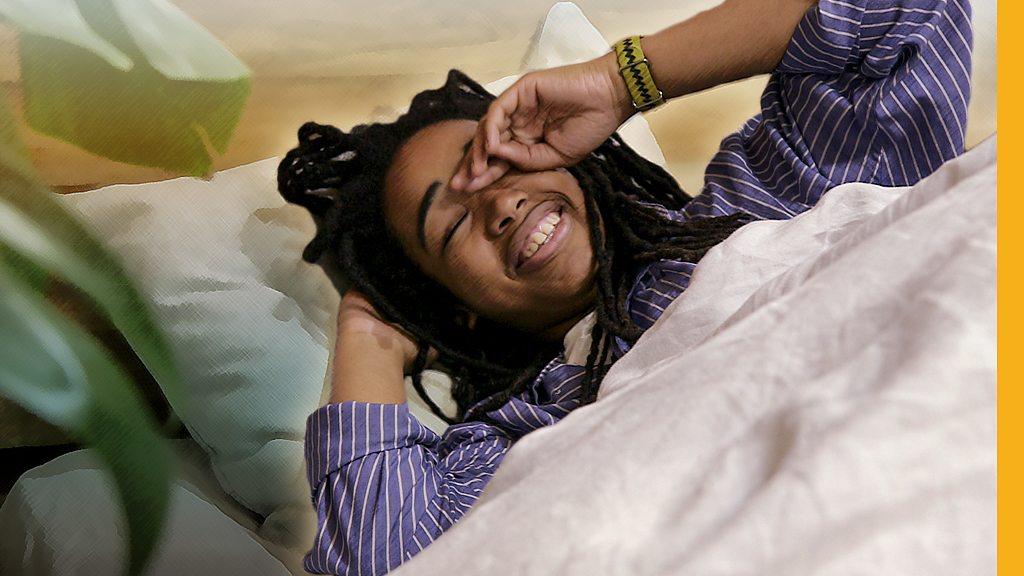
- Published1 November 2017
